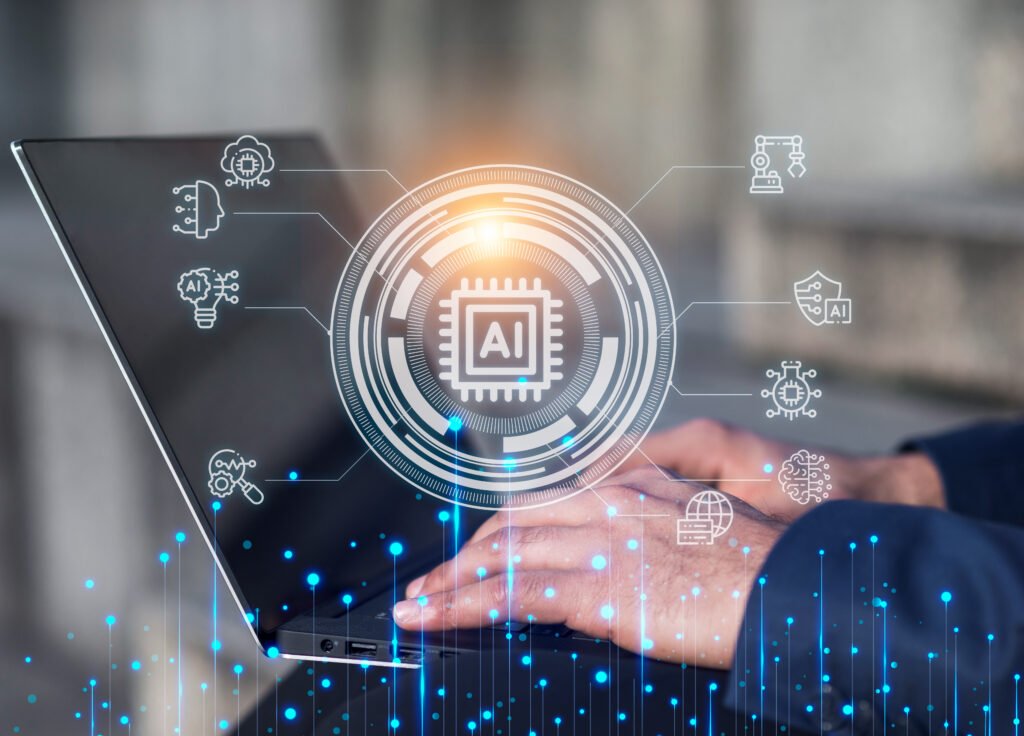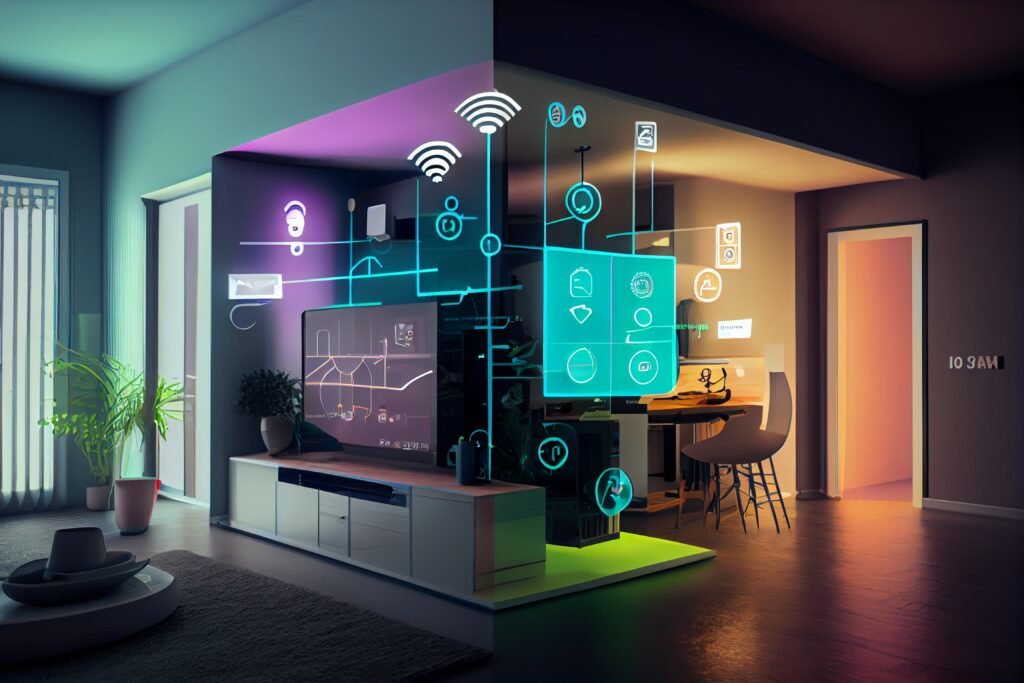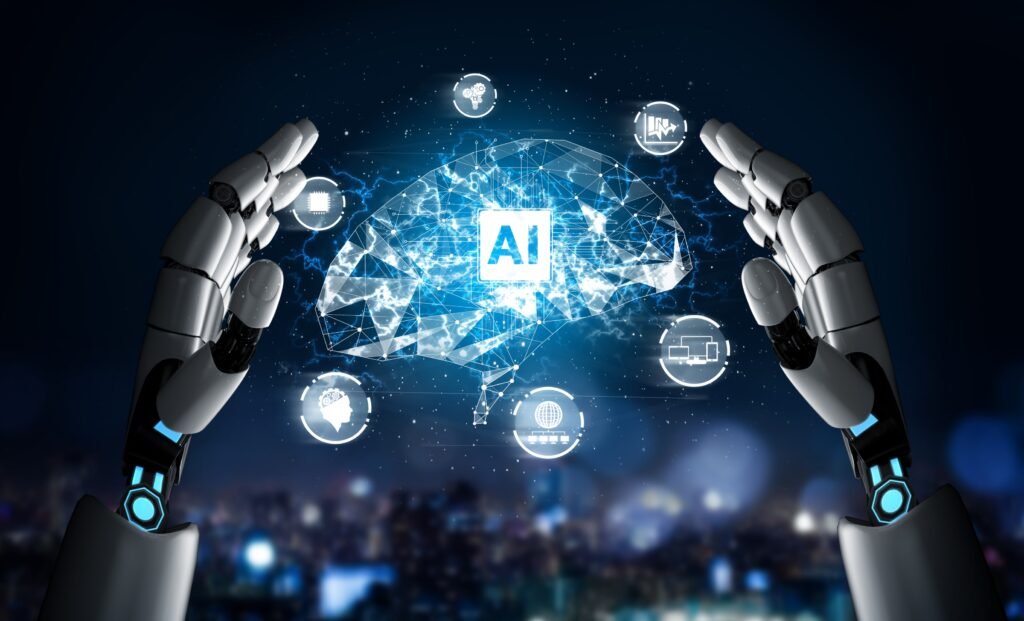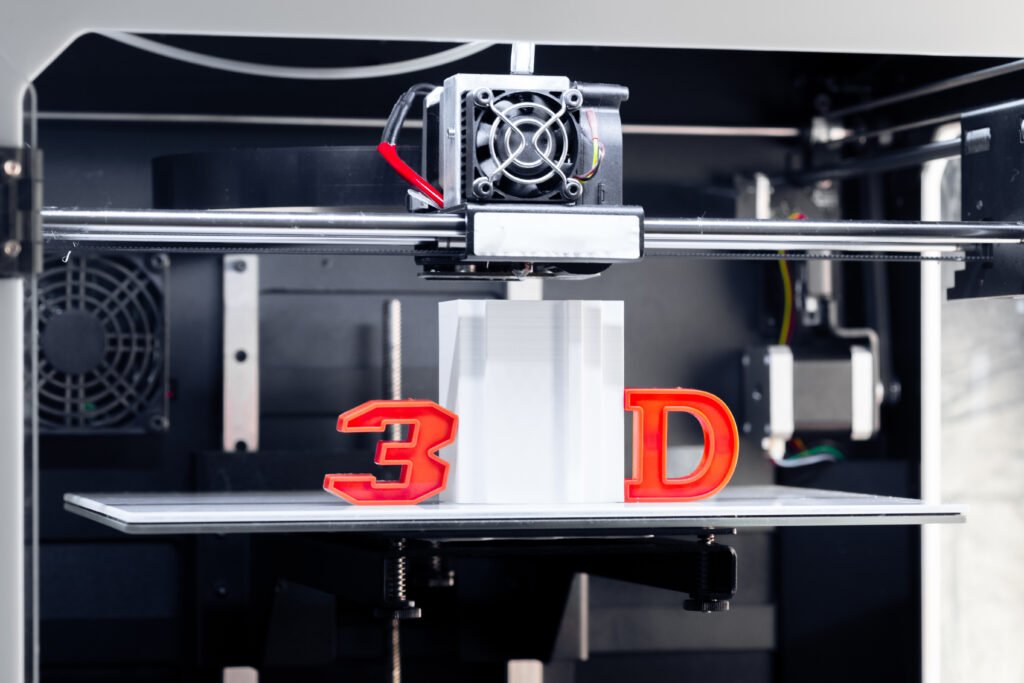
The rate of change is accelerating due to the rapid evolution of technology, which makes development and change possible more quickly. But a lot more has changed, and technology trends and emerging technologies are not the only things that are changing.
This realization has made IT professionals recognize that their job in the contactless world of the future will alter. Furthermore, a 2024 IT professional will be continuously learning, unlearning, and relearning (if not out of choice, then out of necessity).
For you, what does this mean? It entails keeping up with the newest technological developments and trends. It also entails keeping an eye on the future to determine what abilities you’ll require in order to find a stable career tomorrow and even figure out how to get there.
These are the top 22 new technology trends 2024 in order to maybe land one of the jobs that these trends will create. Gen-AI, the buzz of the town, is the first item on the list of new tech trends!
1. Generative-AI

Modern technology called “generative AI” has completely changed a number of sectors by allowing machines to produce content that seems like it was created by humans. It may be used for many different things, such as creating text, creating images, and even creating music. People that are proficient in generative AI can go on to pursue fascinating careers in data science, artificial intelligence research, and the creative industries. A bright future awaits those who grasp generative AI, as its applications continue to grow and offer potential to influence content creation and human interaction in the digital age. Some of the top job roles include:
- AI Researcher, where you can delve deep into the development of advanced generative models
- Data Scientist, using generative AI to extract valuable insights from data
- Content Creator, harnessing generative AI for innovative storytelling
- AI Ethics Consultant, addressing the ethical implications of AI-generated content
2. Computing Power

With practically every gadget and appliance in the digital age being computerized, computing power has already cemented its place. And it’s here to stay, since data science specialists have forecast that in the years to come, the computing infrastructure we are currently developing will only get better. While we currently have 5G, get ready for a world of 6G, where we will have more power in our hands and be surrounded by technology. Even better, the industry is seeing an increase in tech jobs due to computing capacity, however obtaining these positions would require specific qualifications.
The biggest percentage of employment in every nation will come from this industry, which includes data science, robots, and IT management. More technicians, IT teams, relationship managers, and the customer care industry will grow as our devices become more complex. RPA is a crucial subfield within this discipline that you can study today, i.e. Process Automation via Robotics. Top jobs after RPA that you should aim for are as follows:
- Data Scientist
- AI Engineer
- Robotics Researcher
- AI Architect
- Robotics Designer
3. Smart(er) Devices

Our world is becoming more intelligent and efficient thanks in large part to artificial intelligence. Beyond merely mimicking human behavior, it goes above and beyond to simplify and ease our lives. In 2024 and beyond, these increasingly intelligent gadgets are here to stay, as data scientists continue to develop artificial intelligence (AI) wearables, appliances, work devices, and house robots. Almost all jobs require intelligent software programs to help us manage our work life better. As more businesses move into digital areas, smarter devices are another addition to the IT industry that is highly demanded. To succeed, almost all higher-level jobs demand strong IT and automation skills. The following are the top careers you can pursue:
- IT Manager
- Data Scientists
- Product Testers
- Product Managers
- Automation Engineers
- IT Researchers
4. Datafication

To put it simply, datafication is the process of turning everything in our life into software or gadgets that run on data. To put it briefly, Datafication is the conversion of manual jobs and duties into technological solutions based on data. Data is here to stay for longer than we might imagine, from our smartphones, office applications, and industrial machinery to AI-powered appliances and everything else! Thus, maintaining accurate, reliable, and secure data storage has become a highly sought-after specialty in our industry.
There will be a greater demand for IT specialists, data scientists, engineers, technicians, managers, and many other roles as a result of datafication. What’s even more helpful is that anyone with a basic understanding of technology may become certified in specializations linked to data and obtain employment in this field. Skills are more important in data occupations than advanced degrees. Let’s examine a few well-liked data careers:
- Big Data Engineers
- Robotics Engineers
- IT Architect
- Business Intelligence Analyst
- Data Scientists
5. Artificial Intelligence (AI) and Machine Learning

In the last ten years, artificial intelligence, or AI, has already generated a lot of noise. Even yet, it’s still one of the newest technological trends because it has a significant impact on our daily lives and is still in its infancy. AI is already well-known for its excellence in a wide range of applications, including ride-sharing, personal assistants for smartphones, image and speech recognition, and navigation apps.
In addition, AI will be used to analyze interactions in order to uncover underlying relationships and insights; predict demand for services such as hospitals, which will help authorities better allocate resources; and identify shifting customer behavior patterns through near-real-time data analysis, which will increase revenue and improve personalized experiences. There will be more jobs in development, programming, testing, support, and maintenance, to mention a few, as AI spreads throughout industries. However, AI also pays some of the highest rates available today!
The AI subset of machine learning is being used in a wide range of businesses, which is driving up demand for qualified workers. Another emerging technology trend you should be aware of is Forrester’s prediction that by 2025, AI, machine learning, and automation would generate 9% of new employment in the United States. These occupations will include those of robot monitoring specialists, data scientists, automation specialists, and content curators.
Mastering AI and machine learning will help you secure jobs like:
- AI Research Scientist
- AI Engineer
- Machine Learning Engineer
- AI Architect
6. Extended Reality

Virtual reality, augmented reality, mixed reality, and all such technologies that mimic reality are together referred to as extended reality. We all yearn to escape the perceived actual bounds of the world, which makes it a huge technological trend at the moment. This technology, which creates a reality without any physical presence, is extremely well-liked by gamers, medical professionals, retail, and modeling industries.
In terms of extended reality, gaming is a key industry for well-liked jobs that only demand an online gaming interest rather than advanced credentials. To pursue a successful career in this field, you can enroll in studies in game design, animation, or even editing. In the interim, have a look at the top positions in ER, VR, and AR:
- Extended Reality Architect
- Front Lead Engineer
- Software Developer
- AR/VR Support Engineers
- Game Designers
- Pro Gamers
- Creative Directors
7. Digital Trust

People’s faith and trust in digital technologies have grown as a result of their increased use and accommodation of gadgets and technologies. Another important factor driving further improvements is the widespread confidence in digital platforms. People who have a digital conviction think that technology can make the internet a safe, dependable, and secure place where businesses may develop and produce without having to worry about losing the trust of the public.
The two main specialities you can look into are cybersecurity and ethical hacking, which can help establish a safer environment for digital users. You can find a range of employment in these two, from junior to senior positions. A master’s degree or even a diploma is sufficient to seek for a high-paying position in cybersecurity, however professional qualifications may be necessary for ethical hacking. The following are the top positions in ethical hacking and cybersecurity:
- Cybersecurity Analyst
- Penetration Tester
- Security Engineer
- Security Architect
- Security Automation Engineer
- Network Security Analyst
8. 3D Printing

Using 3D printing to create prototypes is a major breakthrough and technological trend. This technique has had an impact on both the industrial and biomedical fields. While printing an actual product from a printer is a reality today, none of us ever considered doing so. Thus, another breakthrough that is here to stay is 3D printing. Many jobs pay well and are international, especially for organizations in the data and healthcare sectors who need a lot of 3D printing for their goods. All you really need to know is the fundamentals of 3D printing, modeling, AI, and machine learning. Let’s examine the top positions in this specialty:
- CX Program Manager
- 3D Printer Engineer
- Emulation Prototyping Engineer
- Robotics Trainer
- AI Engineer
- Operations Manager
- Organ & Prosthetic Designer
9. Genomics

Imagine a technological advancement that allows you to better fend off illnesses and other ailments by studying and utilizing your DNA! The technology known as genomics examines the composition of genes and DNAs, as well as their structure and mapping. Furthermore, by quantifying your DNA, this might assist identify diseases or other potential issues that may develop into health concerns in the future. There are numerous technical and non-technical positions available in a specialty like genomics. Higher degrees of research and theoretical analysis are the focus of non-technical employment in this field, whereas designing, analyzing, and diagnosing are the main responsibilities of technical jobs in this field. The following are the top genomics jobs:
- Bioinformatics Analyst
- Genome Research Analyst
- Full Stack Developer
- Software Engineer
- Bioinformatician
- Genetics Engineer
10. New Energy Solutions

For the sake of our energy consumption and the environment, everyone has decided to live a greener lifestyle. As a result, homes employ more environmentally friendly options like solar and renewable energy, while cars operate on electricity or batteries. Even better, since more people are aware of their waste and carbon footprints, reducing them or converting them to renewable energy sources would benefit society even more.
Energy solutions became the next big thing in technology as a result of this! Data-driven and environmental occupations are also growing in the alternative energy sector. These positions are for people with qualifications in social science and science specializations. Let’s examine the best positions available in the field of new energy:
- Energy Specialist (Solar, Thermal, Hydro-power etc.)
- Solar Plant Design Energy
- Climate Strategy Specialist
- Project Manager
- Chemical Energy
- Biotechnology Specialist
- Renewable Energy Technologist
11. Robotic Process Automation (RPA)

Robotic Process Automation (RPA) is a technology that automates tasks, much like AI and machine learning. Robotic Process Automation (RPA) is the use of software to automate business activities, including handling data, processing transactions, reading applications, and even responding to emails. RPA automates human labor-intensive repetitive tasks.
RPA automation is predicted by Forrester Research to endanger the careers of at least 230 million knowledge workers, or around 9% of the world’s workforce, but it is also generating new jobs and changing current ones. According to McKinsey, over 60% of jobs might be partially automated but less than 5% of jobs could be fully automated.
As an IT professional seeking to keep up with the newest technological developments, RPA presents a plethora of job options, including those as a developer, project manager, business analyst, solution architect, and consultant. This is the next big thing in technology that you need to watch out for since these professions pay nicely! Gaining expertise in RPA can help you land well-paying positions like:
- RPA Developer
- RPA Analyst
- RPA Architect
12. Edge Computing

Cloud computing, which was once a hot new tech trend to follow, has entered the mainstream thanks to the dominance of big firms like Microsoft Azure, Google Cloud Platform, and Amazon Web Services. Cloud computing is becoming more and more popular as more companies move to cloud-based solutions. However, it’s no longer the newest fad in IT. Edge exists.
Organizations are becoming more and more aware of the limitations of cloud computing as the amount of data they manage grows. By avoiding the latency brought on by cloud computing and sending data directly to a data center for processing, edge computing is intended to assist in resolving some of those issues. It can be found “on the edge,” so to speak, nearer to the location where computation is required. Because of this, time-sensitive data can be processed via edge computing in isolated areas with spotty or nonexistent access to a central site. Edge computing can function like miniature datacenters in certain circumstances.
Following the developments in cloud computing, including quantum and new-age edge computing, will help you land incredible positions like:
- Cloud Reliability Engineer
- Cloud Infrastructure Engineer
- Cloud Architect and Security Architect
- DevOps Cloud Engineer
13. Quantum Computing

Quantum computing, or computing that makes use of quantum phenomena like superposition and quantum entanglement, is the next big technological development. Because of this incredible technological trend’s ease of querying, monitoring, analyzing, and acting upon data from any source, it is also helping to stop the coronavirus from spreading and to develop possible vaccines. Quantum computing is also being used in the banking and finance industry for fraud detection, high-frequency trading, and credit risk management.
Large companies like Splunk, Honeywell, Microsoft, AWS, Google, and many more are currently interested in generating advances in the field of Quantum Computing. Quantum computers are currently a myriad of times quicker than conventional computers. By 2029, the global market for quantum computing is expected to generate more than $2.5 billion in revenue. Additionally, knowledge of quantum mechanics, linear algebra, probability, information theory, and machine learning are prerequisites for success in this new, in-demand field.
14. Virtual Reality and Augmented Reality

Virtual reality (VR), augmented reality (AR), and extended reality (ER) are the next great technological development. While AR improves the user’s surroundings, VR immerses the user in it. While gaming has been the main application for this technological development thus far, it has also been utilized for training, as demonstrated by VirtualShip, a simulation program used to instruct U.S. Captains of Coast Guard, Army, and Navy ships.
We can anticipate a greater integration of these technologies into our daily life in 2024. Virtual reality (VR) and augmented reality (AR) have a lot of applications in marketing, education, training, entertainment, and even injury recovery. They typically function in concert with some of the other cutting-edge technologies we’ve covered in this list. These may be applied to improve amusement parks, provide visitors to museums a more immersive experience, teach medical professionals how to perform surgery, or even improve marketing, such in the case of this Pepsi Max bus shelter.
While some employers may require optics as a skill set, keep in mind that starting a career in virtual reality (VR) doesn’t require a lot of specialist expertise. Anyone with a forward-thinking attitude and a basic understanding of programming may find a job in VR, which is another reason this new technology trend should be on your radar!
15. Blockchain

While most people associate blockchain technology with cryptocurrencies like Bitcoin, blockchain provides security benefits in numerous other domains. To put it simply, blockchain is just data that you can add to, not take away from or modify. Since you are creating a chain of data, the term “chain” makes sense. What makes it so safe is that the prior blocks cannot be changed. Furthermore, as blockchains are consensus-driven, no single party is able to seize ownership of the data. Blockchain eliminates the need for transaction oversight and validation by a reliable third party.
Blockchain technology is being used in a number of businesses, and as its application grows, so does the need for qualified personnel. From an aerial perspective, creating and executing blockchain-based architecture and solutions is the area of expertise for blockchain developers.
Now is the ideal moment to get started if blockchain technology fascinates you and you want to pursue a career in this cutting-edge field. Working knowledge of programming languages, OOPS principles, flat and relational databases, data structures, web app development, and networking are prerequisites for entering the blockchain industry. Gaining expertise in blockchain can help you advance in a number of sectors and professions:
- Risk Analyst
- Tech Architect
- Crypto Community Manager
- Front End Engineer
16. Internet of Things (IoT)
IoT is another exciting new technology trend. These days, a lot of “things” are constructed with WiFi connectivity, enabling them to connect to the Internet and to one another. And so the Internet of Things (IoT) was born. The Internet of Things, which has already made it possible for gadgets, vehicles, home appliances, and much more to be connected to the network and share data, is the wave of the future.
We already use and profit from IoT as consumers. We may use our Fitbits to track our fitness and remotely lock our doors in case we forget to do so before leaving for work or warm our ovens on the way home. But businesses stand to benefit a great deal both now and in the foreseeable future. Better safety, efficiency, and decision-making for enterprises can be made possible by the Internet of Things when data is gathered and examined. It can facilitate predictive maintenance, expedite healthcare, enhance customer support, and provide advantages we haven’t even begun to consider.
We’re just getting started with this new technological trend: estimates indicate that by 2030, there will be some 50 billion IoT devices in use globally, building a vast network of connected gadgets that will include everything from kitchen appliances to smartphones. Additionally, you will need to learn about automation, hardware interface, data analytics, networking, embedded systems, information security, and device and design skills if you want to work with this cutting-edge technology.
17. 5G

5G is the next big thing in technology, coming after IoT. 5G services are anticipated to completely transform our lives, in the same way that 3G and 4G technologies allowed us to access the internet, use data-driven services, improve bandwidths for streaming on YouTube or Spotify, and much more. By making cloud-based gaming services like Google Stadia, NVidia GeForce Now, and many more available, along with applications that rely on cutting-edge technology like AR and VR. It is anticipated to be utilized in industries, smart grid control, smart retail, and HD cameras that enhance safety and traffic management.
Almost all telecommunications companies, including QualComm, Apple, Tmobile, Verizon, and Nokia Corp., are now developing 5G applications. By the end of 2027, there will be 4.4 billion 5G Network subscribers, making it a rising technological trend that you should keep an eye on and reserve a seat for.
18. Cyber Security

Given that it has been around for a while, cyber security may not seem like a new technological trend, but it is still developing along with other technologies. This is partially due to the ever-evolving nature of threats. Malevolent hackers who are attempting to obtain data illegally are not going to give up easily, and they will keep finding methods around the most robust security systems. Additionally, some of it stems from the adaptation of new technologies to improve security. Because cybersecurity will always be advancing to ward off hackers, it will continue to be a hot topic in technology.
By 2025, 60% of businesses will use cybersecurity risk as their main consideration when entering into business agreements and dealing with third parties, predicts Gartner. It is important to remember that, despite its challenges, this industry pays six figures and offers a variety of positions, including:
- Ethical Hacker
- Malware Analyst
- Security Engineer
- Chief Security Officer
19. Full Stack Development

The process of creating a web page or software application’s front end (user interface) and back end (server side) simultaneously is known as full stack development. Full stack developers may work on the whole software stack because they are skilled in a variety of technologies and programming languages.
Businesses are looking for adaptable developers that can create end-to-end solutions quickly, which has led to the growth of this trend. Faster product development and deployment are made possible by full stack development, which simplifies the development process.
20. DevOps

A collection of procedures known as DevOps emphasizes cooperation and communication between teams working on software development (Dev) and IT operations (Ops). In order to enable more frequent and dependable releases, it attempts to automate and optimize the software development and deployment lifecycle.
Infrastructure as code, automated testing, continuous integration, and continuous delivery are examples of DevOps methods. Implementing DevOps results in enhanced software quality, accelerated development cycles, and more adaptability to changes and client demands.
21. Metaverse

Users can engage in real-time interactions with digital settings and each other in the metaverse, a virtual and interconnected digital cosmos. To create immersive, shared experiences, it blends virtual reality (VR), augmented reality (AR), and other technologies. Businesses are looking into using the metaverse in a variety of fields, including social networking, education, gaming, and healthcare. This trend, which unites the digital and real worlds, is anticipated to have a significant impact on business collaboration, communication, and entertainment.
22. Digital Twins

Digital twins are computer-generated images of real-world systems, processes, or things. Data from sensors and Internet of Things devices, among other sources, is used to construct these digital representations. Organizations can use digital twins to monitor, replicate, and evaluate real-world activities and assets in a virtual setting. They are used in a variety of fields, including industry, healthcare, and urban planning. Businesses may increase efficiency, safety, sustainability, and decision-making by optimizing processes and building digital twins.
